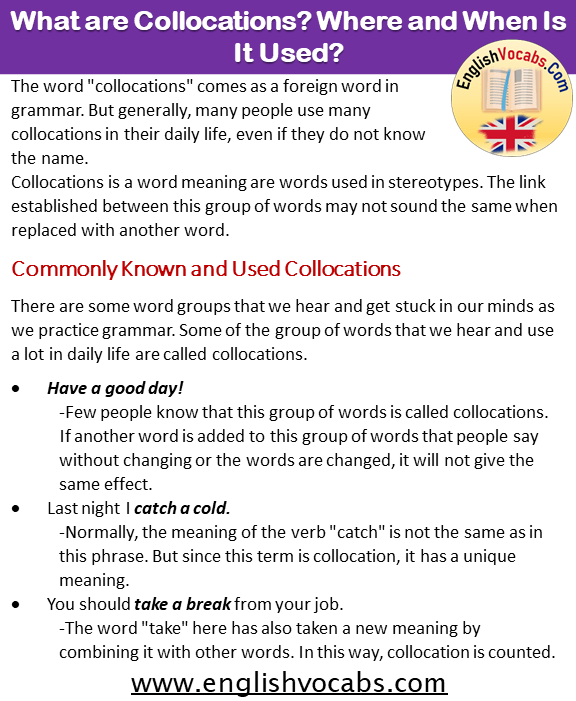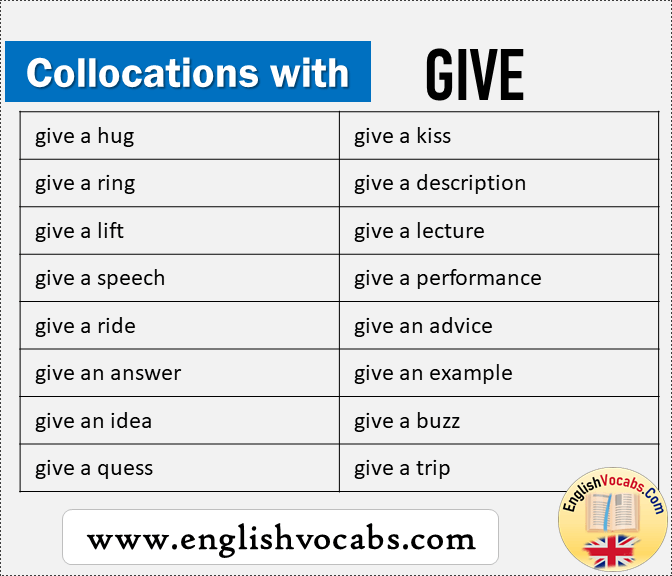What are Collocations? Where and When Is It Used?

Table of Contents
What are Collocations? Where and When Is It Used?
The word “collocations” comes as a foreign word in grammar. But generally, many people use many collocations in their daily life, even if they do not know the name. Collocations is a word meaning are words used in stereotypes. The link established between this group of words may not sound the same when replaced with another word. This is why this group of words is named collocations. Collocations can express an emotion, a situation, an event, or an action. Apart from the collocations that we are used to daily, listening and reading are necessary to learn collocations.
Here are +450 Common Collocation Words List
Commonly Known and Used Collocations
There are some word groups that we hear and get stuck in our minds as we practice grammar. Some of the group of words that we hear and use a lot in daily life are called collocations.
- Have a good day!
-Few people know that this group of words is called collocations. If another word is added to this group of words that people say without changing or the words are changed, it will not give the same effect.
- Last night I catch a cold.
-Normally, the meaning of the verb “catch” is not the same as in this phrase. But since this term is collocation, it has a unique meaning.
- You should take a break from your job.
-The word “take” here has also taken a new meaning by combining it with other words. In this way, collocation is counted.
- I think she pays attention to this guy.
-The word “pay” in the sentence has changed its meaning when combined with another word, even if it means another meaning on its own.
Types of Collocations
Some techniques need to be considered to create collocations. It is also necessary to practice a lot and get used to these techniques. In this way, collocations can be created. The known types of collocations are listed below.
- Collocations With Two Adverbs: Two adverbs can be combined to form collocations.
–Perfectly fine. Even if a synonym is used instead of “perfectly” here, it doesn’t mean the same because it is collocation.
- Collocations with Adjectives and Nouns: Collocations can be created with a combination of nouns and adjectives.
–Heavy traffic. No word substitute for “heavy” will mean the same as collocation.
- Collocations with Combination of Verbs and Nouns: Collocations can be made using verbs and nouns.
–Take a seat. The word “take” can be used other than its original meaning. No word that will be replaced will be in the same sense.


